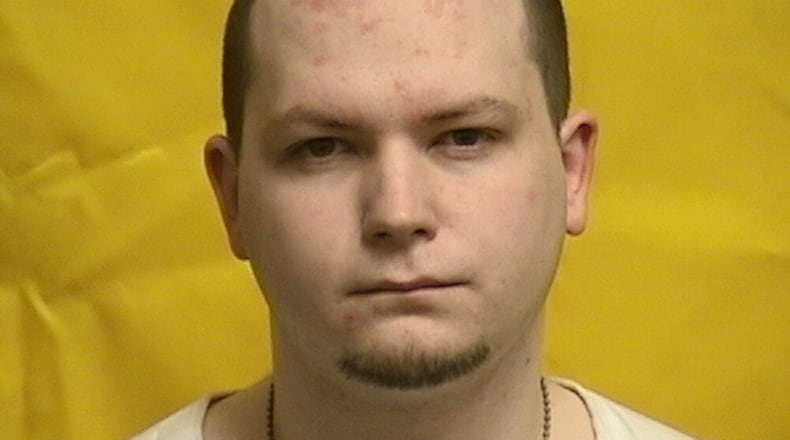Trial testimony showed that Myers planned the crime, although Mosley ultimately stabbed Back to death during a struggle with Mosley and Myers on the floor of the kitchen after a garrote designed to choke Back to death caught on his chin.
Myers was sentenced to death. In his latest appeal of that sentence, he will be able to present evidence that wasn’t used in previous appeals related to his mental health, according to the latest court ruling.
Myers and Back were friends until the eighth grade, when Myers moved to Clayton and attended Northmont High School. Testimony indicated Myers was the one who decided they should target Back’s home, unaware the family safe contained only $70 at the time.
Myers took two days of preparation, including acquiring septic chemicals he expected would help decompose Back’s body, and shot the body before he and Mosley disposed of it in woods in Preble County.
Back was 18 at the time and a 2013 Waynesville High School graduate a week away from entering the U.S. Navy.
Mosley pleaded guilty and was sentenced to life in prison without the possibility of parole. He testified against Myers at trial.
The Ohio Supreme Court has upheld Myers’ conviction and sentence previously.
But changes in the state law led to the 12th District Court of Appeals decision that the trial court erred in dismissing Myers’ petition that claimed his defense failed to present expert testimony during the penalty phase on adolescent brain development in conjunction with his age and mental health issues.
The appeals court returned the death penalty appeal to the trail court for hearing.
Warren County Prosecutor David Fornshell said there has been substantial modification to the statue about appeals in last three years, “so in many ways this issue is kind of a matter of first impression on how to deal with these issues since the statute changed.”
He said the scope is very limited to discovery issues relating to youthful brain development and if those specific issues should have been more a part of the mitigation phase.
Fornshell said it is difficult with reviewing cases for anyone to know all the evidence considered by defense counsel and for what reasons.
“Hindsight because the outcome wasn’t what you wanted is easy. You are saying it may have gone a different way. It may not have. It may have been a quicker sentence from the jury. It may have opened up a whole plethora of issues that were even worse for the defendant and the defendant’s chances on appeal,” Fornshell said.
Fornshell said his office is considering appealing the decision to the Supreme Court to provide some clarity.
About the Author


